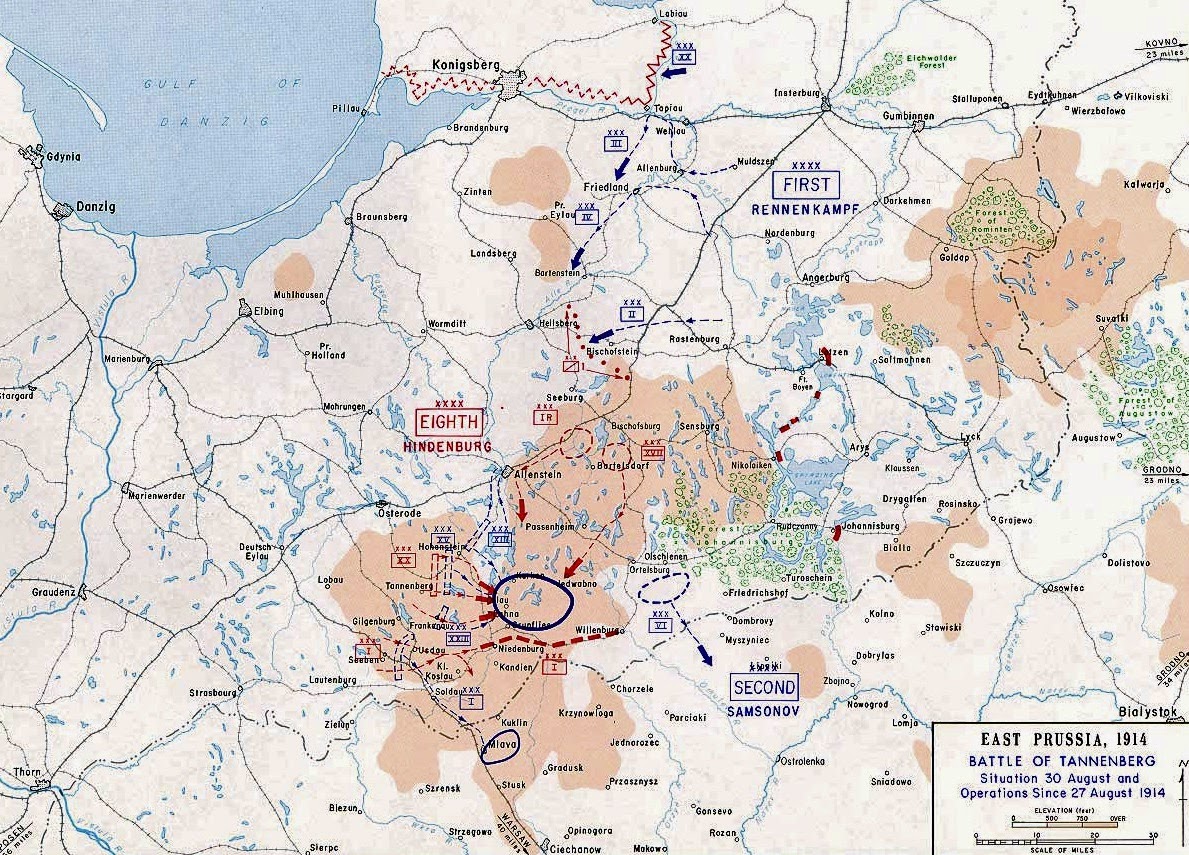- Moltke also orders the redeployment of six Ersatz divisions from Belgium to Lorraine to support the operations of 6th and 7th armies. These divisions had originally been tasked with relieving the different Reserve corps that were masking Antwerp and Maubeuge, and garrisoning Brussels. Instead, Moltke hopes these divisions will provide the vital margin of strength to allow a breakthrough south of Nancy and the envelopment of the French army. However, the Ersatz divisions are 'ersatz' for a reason - poorly-equipped and with little training, these reserve forces were only suited for garrison duties, not for offensive operations. Their redeployment is symbolic of Moltke's improvisional approach to the campaign, and his willingness to deviate from the Schlieffen Plan.
- The German VII Reserve Corps today surrounds the French fortress at Maubeuge. Its seizure is essential, as it stands astride the main railway between Cologne and Paris. For as long as the fortress holds out, however, this corps is unavailable to assist the further advance of German forces to the southwest.
- Since yesterday, the French 4th Army has been locked in battle with the German 4th Army south of Sedan. While the stand has held off the Germans so far, it has opened up a gap between 4th and 5th Army to the west. To cover this gap, Joffre orders the formation of a special army detachment. Assigned to it are two corps from 4th Army and two divisions from 5th Army, and is to be commanded by Ferdinand Foch, whose leadership of XX Corps in Lorraine has been one of the few bright spots in the opening week of the campaign. As he takes up his new post, Foch learns that his only son was killed in action on August 22nd.
- The new War Minister visits Joffre today at the latter's headquarters to be briefed on the military situation, and remind Joffre of his predecessor's order to dispatch several corps to defend Paris. While Joffre warns that German cavalry may be at the gates of Paris in four or five days, he argues that he needs every available soldier for his planned counterattack with 6th Army forming near Amiens, and cannot spare anything for Paris. Joffre does agree, however, that if his counterattack does not succeed, he will send three corps to Paris.
- Joffre also issues orders at 6am to General Lanrezac that 5th Army turn and counterattack, in order to buy sufficient time for 6th Army to assemble near Amiens. Lanrezac, for his part, views the order as insane - as his semi-disorganized army currently faces north, to attempt a turn to the west and then an attack would invite destruction by its exposed flank. He argues that he needs to withdraw further and establish a firm line of defense before a counterattack can be attempted.
- The mood at OHL, meanwhile, is exultant, believing that the key battles have been fought and the war nearly won. The official communique of OHL states today: 'The German Armies have entered France from Cambrai to the Vosges after a series of continually victorious combats. The enemy, beaten all along the line, is in full retreat . . . and is not capable of offering serious resistance to the German advance.'
- At 4am, the long-delayed attack by General François' I Corps finally begins with an overwhelming artillery barrage against the Russian I Corps on the left of the Russian 2nd Army. François's two days of disobedience, based on the need to bring up his artillery, now appears justified - the artillery bombardment by itself causes the Russian I Corps to break and flee the battlefield, allowing François' corps to advance eastward. By the end of the day, the German I Corps has entered Soldau, cutting one of the lines of communication of the Russian 2nd Army.
On the eastern flank of the Russian 2nd Army, confusion reigns. Having pushed back the Russian 6th Corps, the commanders of the two German corps - Mackensen and Below - argue over which corps should have priority on the road to Allenstein, and neither moves. Even this quarrel, however, ends up working to the Germans' advantage, as General Samsonov of the Russian 2nd Army concludes that 6th Corps is not faced with overwhelming numbers, and that the defeat suffered by 6th Corps yesterday was the fault of its commander. Thus Samsonov continues to push the centre of his army forward against the German XX Corps, making progress, but also marching further into the trap. Indeed, while Samsonov is growing aware of the threat on his flanks, he decides that the best response is to attack in the centre and so fix the German 8th Army in its position while 1st Army comes to Samsonov's aid. In the circumstances, this is the absolute worst thing Samsonov could have attempted to do.
As for 1st Army, it is only today that General Zhilinskii at North-West Front headquarters finally comprehends that the German 8th Army is standing and fighting, not retreating behind the Vistula River. He telegraphs General Rennenkampf for his 1st Army to advance to 2nd Army's aid. The objectives his gives Rennenkampf, however, are too westerly, and he does not insist on 1st Army undertaking a forced march. Though 1st Army does begin to redirect itself in the direction of 2nd Army, they are still too far away to make any difference.
 |
| The Battle of Tannenberg, Aug. 27th to 30th, 1914. |
No comments:
Post a Comment